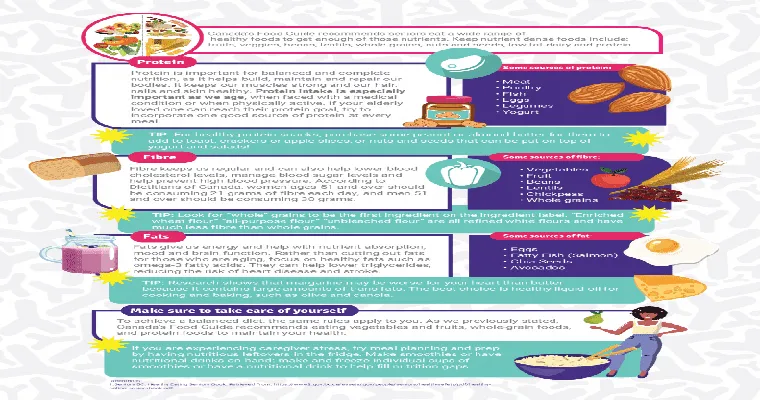As we age, maintaining a "healthy diet" becomes increasingly important for overall well-being. After age 50, our bodies undergo various changes that can affect our nutritional needs. Emphasizing "nutrient-dense foods", staying hydrated, and adjusting portion sizes are just a few strategies that can help ensure a balanced diet during this phase of life. Here are ten essential tips for a healthy diet after age 50.
1. "Prioritize Nutrient Density"
Focus on foods that are high in nutrients but low in calories. Incorporate plenty of "fruits", "vegetables", "whole grains", and "lean proteins" into your meals to provide your body with essential vitamins and minerals.
2. "Stay Hydrated"
As we age, our sense of thirst may diminish. Aim for at least eight glasses of water a day, and consider incorporating herbal teas and broths to help with hydration. Staying hydrated is crucial for maintaining energy levels and overall health.
3. "Limit Processed Foods"
Processed foods often contain high levels of "sodium", "sugars", and unhealthy fats. Opt for whole foods whenever possible to reduce the risk of chronic diseases and maintain a healthy weight.
4. "Manage Portion Sizes"
Metabolism tends to slow down after age 50, making it important to be mindful of portion sizes. Use smaller plates and bowls to help control portions and avoid overeating.
5. "Increase Fiber Intake"
A higher fiber intake is essential for digestive health. Include foods like "whole grains", "beans", "fruits", and "vegetables" in your diet to promote regularity and prevent constipation, a common issue as we age.
6. "Choose Healthy Fats"
Incorporate sources of healthy fats such as "avocados", "nuts", and "olive oil" while minimizing saturated and trans fats. Healthy fats support heart health and can help with inflammation reduction.
7. "Include Lean Proteins"
Protein is vital for muscle maintenance, especially after age 50. Include sources such as "fish", "chicken", "tofu", and "legumes" to help preserve muscle mass and support overall strength.
8. "Be Mindful of Sugar Intake"
Excess sugar can lead to weight gain and increase the risk of diabetes. Opt for natural sources of sweetness, like fruits, and limit sugary snacks and beverages to maintain stable blood sugar levels.
9. "Plan Balanced Meals"
Aim to create meals that include a balance of "carbohydrates", "proteins", and "fats". A well-balanced meal helps stabilize energy levels and keeps you feeling satisfied longer.
10. "Consult a Nutritionist"
If you're unsure about your dietary needs, consider consulting a nutritionist. They can provide personalized advice tailored to your health goals, lifestyle, and any medical conditions you may have.
In conclusion, adopting a healthy diet after age 50 is vital for maintaining energy, preventing chronic diseases, and promoting overall well-being. By following these ten tips, you can create a nutritious eating plan that supports your health and enhances your quality of life as you age.





